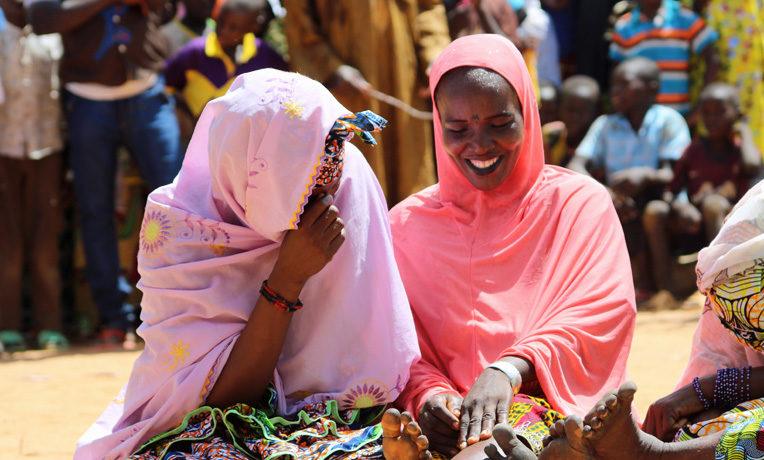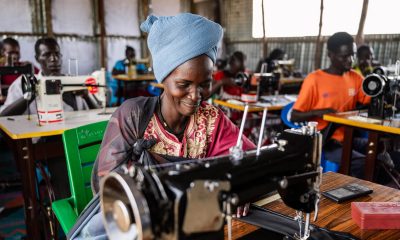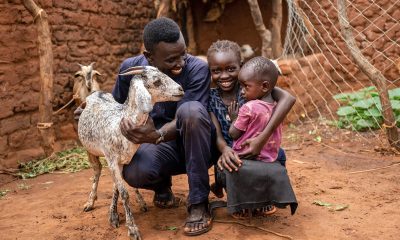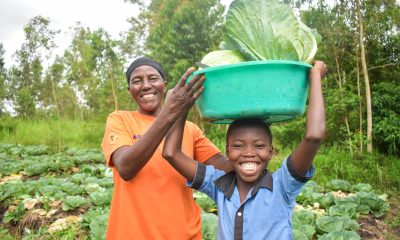Villages come together at the end of a Samaritan's Purse farming project
One of the most critical challenges that Nigeriens face is growing food in a country that has no rain for nine months out of the year. The soil is almost completely unusable for farming, which means that farmers must work harder for much less food.
Because of this extraordinary need, Samaritan’s Purse began a farming project in 2013 in five villages in Niger. It was designed to work with villages and to educate farmers on techniques for growing food in the severe climate of Niger, and in the end, to provide food for Niger in the present as well as in the future.
Since the project began, the five villages have come together every year to share what they’ve learned and to celebrate their success. This year was the final year for the project, and the villagers all came together for skits, presentations, and demonstrations. The speakers were chosen from among beneficiaries in the five villages who have been faithfully practicing techniques from the project, and who, as a result, have seen positive changes in their crops and health.
Before the celebration began, the village rushed with the activity of brightly-dressed villagers carrying samples of the crops from the past year, women laying out mats to sit on, and children running around and between all the activities, laughing and playing and getting in the way.
I was able to wander through the crowds, photographing crops, guests, speakers, and mothers with their children. Between my camera and my white skin, I attracted a lot of interest. One girl, wrapped in an embroidered yellow shawl, watched me curiously and smiled when I caught her eye. Other children stopped and grouped together when they saw me holding my camera, posing for a picture without even being asked. Even the wife of the pastor for the project pulled me into a nearby home to photograph one of the speakers who was hurriedly practicing her presentation one last time.
When all the crowds were seated either under shelters or on mats, or simply standing in the hot sun, the celebration began with a song from four women. It was followed by a mix of individual speakers and group presentations, speeches, and skits. A group of men presented a skit on farming techniques that had the entire audience laughing, and several women discussed the education topics they’d learned, like exclusive breastfeeding, hygiene and health, and how to grow new crops. The pastor and his wife who worked with the project also spoke about Samaritan’s Purse.
Since I didn’t understand the language, one of the project coordinators translated for me. Sometimes I understood the principles through the skits themselves, like when the group of men showed the correct way to plant seeds.
Near the conclusion, each of the villages demonstrated the crops they were able to grow through the project. Representatives from the villages presented examples of their crops and discussed the farming methods they used. With regular seed and techniques, maize takes four months to grow, but the maize provided by Samaritan’s Purse produces a crop in only three months. This is true with other crops in the project as well—with improved seeds, gardens and farms can produce crops more quickly than with regular seeds, which helps provide food for families who struggle against the harsh conditions in Niger.
At the end of the celebration, a woman represented the villages in thanking the guests, the leaders of the five villages, and Samaritan’s Purse. Now, she said, the villagers are able to eat. This was the goal of the project—not only to feed the villagers now but to teach them skills and techniques so that they can continue to grow crops and will continue to be able to eat for many years to come.







